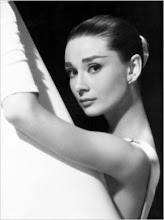And this afternoon, we found out that we are getting the house we have been coveting for months.
Coincidence? Well...probably. But it's fun to think there might be some connection. If only I had known that's what fate was waiting for, I would have finished "War and Peace" earlier in the month.
The epilogues in "War and Peace" were even more annoying than I had expected. The first one explained what happened to the characters in the years following the end of the book. Told more like a book outline, or even like a series of obituaries (what the characters accomplished, how they were viewed by others, etc.) it lacked even the small amount of charm found in the main part of the book. The second epilogue was directed mainly to explaining that while humans think they have free will, they in fact do not.
And then, to my surprise, the second epilogue was followed by an "appendix" written by Tolstoy.
It was while reading this appendix that I finally realized what will keep me from thinking of "War and Peace" as one of the greatest books I have ever read. In it, Tolstoy wrote that he spent five years of "ceaseless and exclusive labor" on the book and that he wanted to state his view of the book -- to remove any "perplexities which may arise in readers". Tolstoy wrote that he did not want readers "to see or seek in my book what I did not want...to express, and to pay attention to precisely what I wanted to express."
That is, Tolstoy wanted to ensure that readers saw the book only precisely as he intended. He wanted to ensure that readers did not seek, or have, free will in reading his book -- just as he says we lack it in the rest of our lives.
To me, that takes away one of the essential joys of reading.
Emerson wrote, "'Tis the good reader that makes the good book; in every book he finds passages which seem confidences or asides hidden from all else..."
Tolstoy seemed determined to obliterate this role of the "good reader". With his constant repetitions, his long-winded explanations of otherwise clever similes, his on-going re-statement of the book's themes, and especially with his epilogues, Tolstoy was taking away from the reader the best part of reading -- a sense of discovery, pleasure and imagination.
"War and Peace" did give me some insights into war that I may never forget. And some of the character descriptions were marvelous. But too much of it seemed like a lecture by a doddering professor who is overly committed to his own viewpoint.
I wish Tolstoy had thought enough of his readers to allow them to think, at least a little bit, for themselves.
Tonight, Tom and I are sitting down to watch the movie "War and Peace". Made in 1956, it stars Audrey Hepburn, Henry Fonda and Mel Ferrer. I'll write about that tomorrow...











1 comment:
Congratulations on finishing War and Peace and on the house! A very productive day! :)
(Btw, I wonder how long War and Peace would have been if Tolstoy had not been so keen on repeating himself.)
Post a Comment